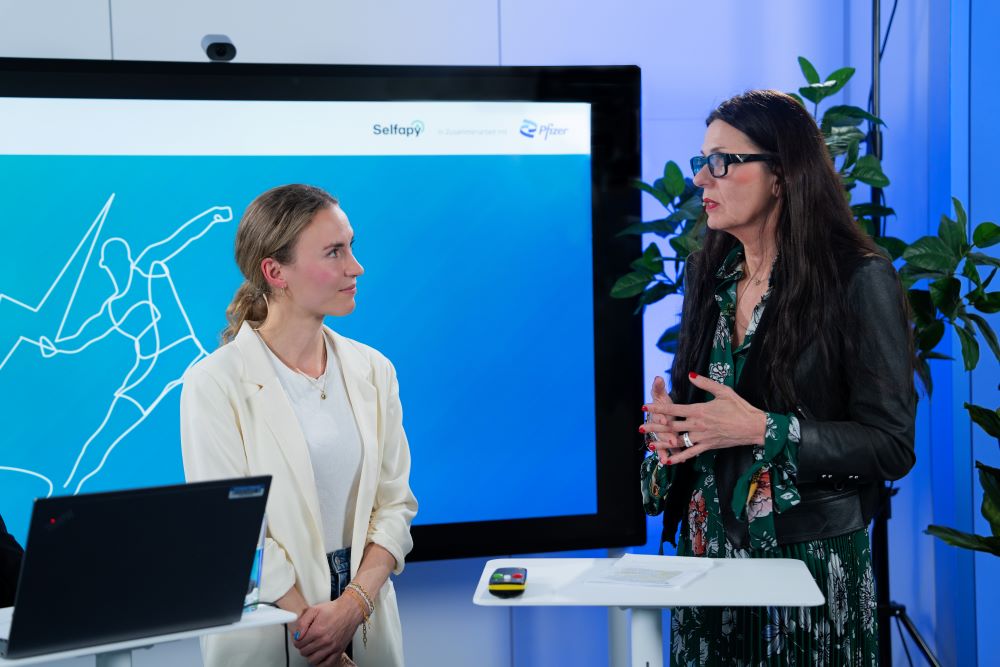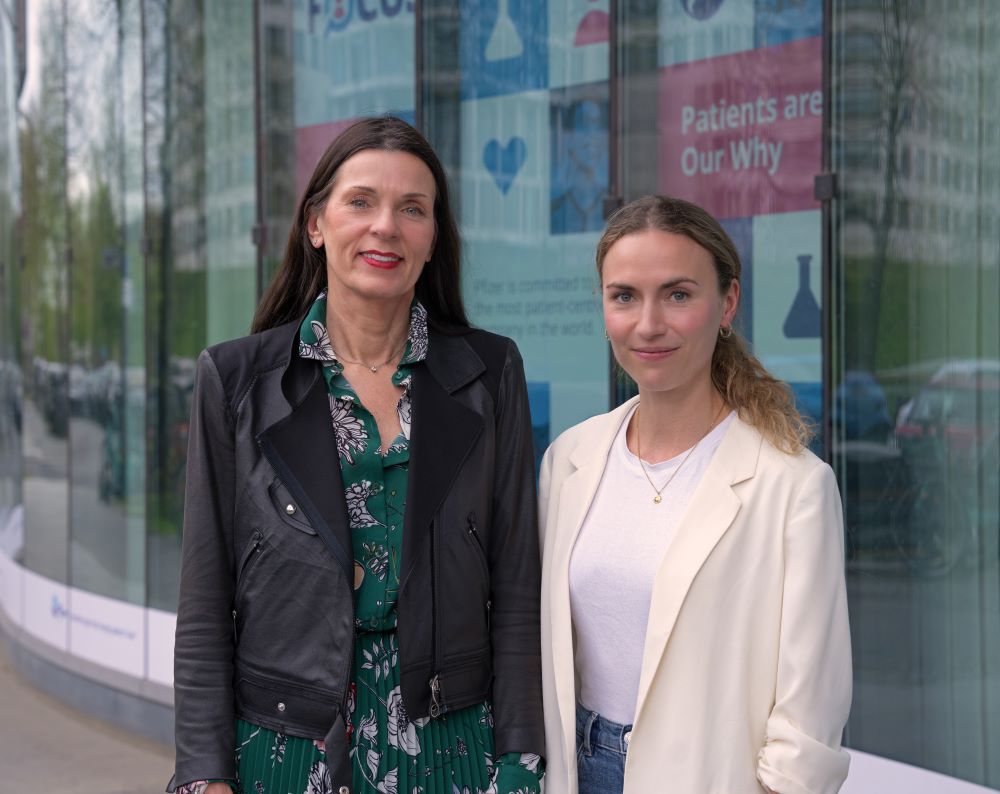"Look at what added value you can create for people together"
Interview with Selfapy founder Nora Blum

In April 2023, Selfapy and Pfizer launched the digital health application (DiGA) "Selfapy's Online Course for Chronic Pain", a reimbursable 12-week online course with video, text and audio content for patients with back pain and chronic pain. Selfapy is one of the largest providers of DiGA on the German market and a professional in the development of digital applications. For the market launch and marketing of the app, the young company has decided to cooperate with Pfizer.
We spoke with Selfapy founder Nora Blum about the reasons and advantages of a cooperation with Big Pharma, cultural differences between large companies and dynamic startups and asked her what advice she would give to other founders for such a cooperation.
For your latest DiGA "Selfapy Chronic Pain" you are cooperating with the pharmaceutical company Pfizer – how did that come about?
We recognized early on that chronic pain is a major issue for those affected. We also see this in the participants of our depression course: For example, many suffer from chronic pain in addition to their depression and want support. However, finding a therapy place with a pain psychotherapist is particularly difficult, as only a few have this additional training. For this reason, we wanted to develop an offer that starts exactly here and helps those affected.
However, since we had previously developed purely psychological and not psychosomatic applications, it was clear to us that we would like to launch "Selfapys Online Course for Chronic Pain" together with a partner. Pfizer is the ideal partner for us, especially due to its many years of experience with pain patients.
What is the advantage for Selfapy?
Pfizer has many years of expertise in the field of pain management and can therefore ideally support us in the market launch and marketing of the Selfapy online course for chronic pain. Pfizer and Selfapy complement each other in a meaningful way where their respective competencies create real added value. As a pharmaceutical company, Pfizer has the necessary access to doctors who are critical to prescribing Selfapy products. Through the cooperation, Selfapy can conserve important resources, use the available resources sensibly and reach even more people with chronic pain.
A young digital health company and an international pharmaceutical company – how do you deal with cultural differences?
By putting our cards on the table right from the start and talking about how each team works and what processes look like. As a dynamic digital health company, we work with agile structures, but at the same time we are a manufacturer of certified medical devices, which requires sustainable and structured work processes. Transparency is the best way to develop an understanding of different ways of working and any cultural differences. Once both sides have gained this understanding, a basis for successful cooperation and joint processes is created.
Do you have a concrete example that illustrates the difference between agile, young companies and large companies?
One difference is probably the speed at which we work. At Selfapy, we also have well-defined processes for developing and improving our products in all areas of the company. However, we are particularly quick to implement here, as the approvals are unlikely to go over as many tables as is the case with a large pharmaceutical company. We are also constantly optimising processes as soon as we notice that an approach does not work (anymore). What might take several weeks in a large company is put on the road effectively and as quickly as possible.
How does trust develop in such a cooperation and what does it take on both sides?
In my view, personal conversations are the most important way to build trust right from the start. Not only at the management level, but also between the teams that work together. We also appreciate the honesty, transparency and professionalism of our cooperation with Pfizer. This is the only way to ensure cooperation on an equal footing and in mutual trust.
What advice do you have for other manufacturers of digital health applications for such collaborations?
Don't look for the things that make you different, but for the synergies that can result from working together. See what added value you can create for people together and use the different strengths and competencies of both partners in this way.
Thank you very much for the interview, Ms. Blum!
